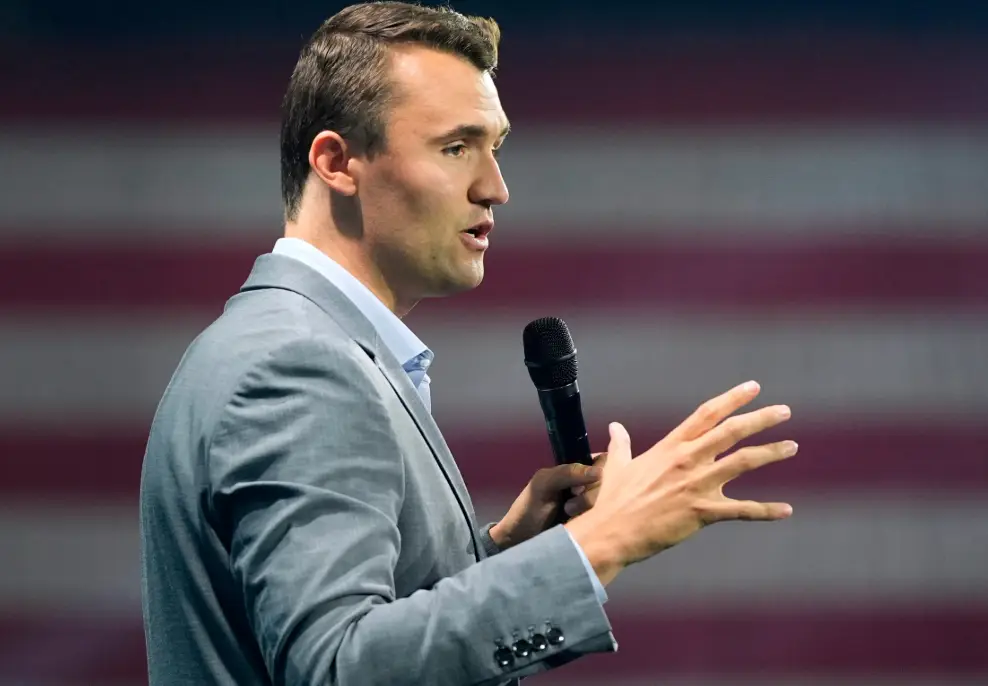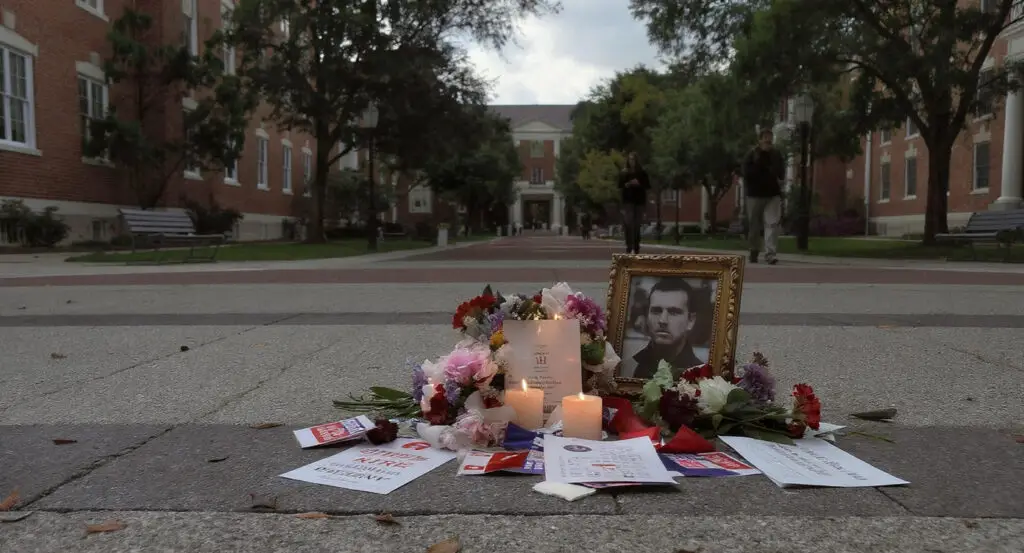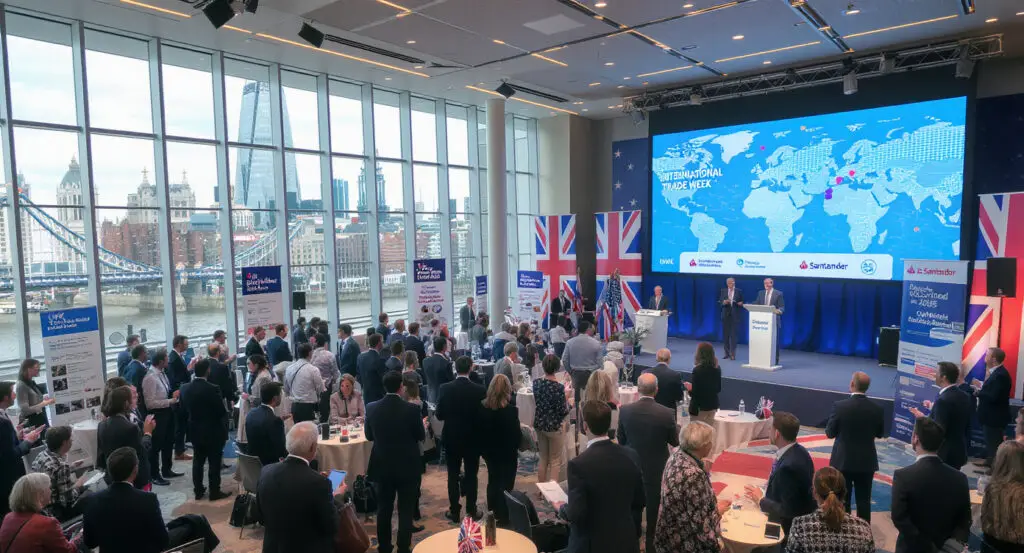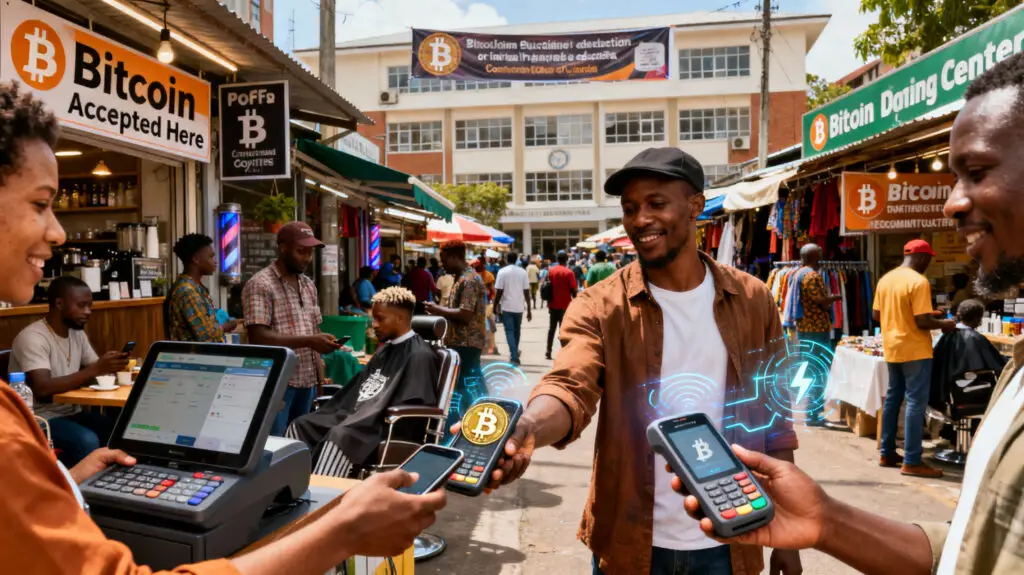Charlie Kirk’s Death Highlights Dangerous Shift in Political Violence Trends
The shooting death of conservative activist Charlie Kirk on September 10th raised worries about rising political violence in the US. Kirk’s murder shows that nonprofit political figures can also be targeted for hate, unlike attacks on elected officials. This event shows how political violence is spreading, bringing more people into cycles of violence.
Scholar Arie Perliger says that political assassinations often lead to revenge, which leads to waves of violence that are accepted by people on both sides of the political spectrum. He says that Kirk’s death could make this kind of behavior seem normal, making it seem like an acceptable political tool. This normalization could lead to more attacks in places where people disagree.

Recent Attacks Reveal Escalating Threats to Politicians Nationwide
In the past two years, there have been many violent attacks on political leaders, including attempts to kill Donald Trump. Violence is spreading beyond federal politics, as shown by the murder of Minnesota lawmaker Melissa Hortman and other tragedies. This wave suggests that politicians at all levels are facing more and more threats to their lives.
Perliger uses data to show that almost a quarter of Americans think political violence is okay. Polarizing and demonizing opponents hurts conversation, making people more hostile and less likely to reach a compromise. This makes it more likely that violence will take the place of debate.
Polarization Makes It Hard to Find Clear Ways to Solve Problems
Today’s polarization is different from past fights over civil rights or Vietnam because there isn’t a central issue that can be worked out. Instead, differences include identity, values, and ideology, which means that neither side can find a compromise that works for both sides. This deep-seated animosity diminishes the prospects for substantive dialogue.
Perliger says there is almost no bipartisan cooperation in Congress anymore, which makes people trust the other side less. The lack of shared policymaking only makes people see their opponents as threats to their very existence. These kinds of situations make political violence more likely to happen again.
Recommended Article: Social Media Ban in Nepal Fuels Gen Z Protests and Crisis
College Campuses Emerge As Flashpoints Of Political Tension
Kirk’s assassination on a college campus shows how universities have become places where people fight with each other. In the past, campuses were places where people could debate and learn about new ideas. Today, though, activism is more about being angry than about learning. This change makes it harder for them to be safe places for people to share different points of view.
Perliger says that violence on campus is heartbreaking and that activism often leaves out constructive conversation. Instead of talking to people who disagree with them, students are more likely to shut them down. This trend could make the divisions between generations in society even worse.
Political Rhetoric Plays Pivotal Role in Shaping Violence Narratives
Donald Trump said that “radical left” speech and media framing made it okay for people to attack people like Kirk. Perliger says that rhetoric has a big effect on how people accept violence, but he also points out that Trump’s own record is full of contradictions. His pardons of violent criminals make him less credible on the issue.
The scholar emphasizes that political leaders must communicate responsibly to mitigate extremism. Government signals too often make people more likely to act violently instead of always condemning it. This inconsistency makes people more likely to accept political aggression.
Breaking Cycles Of Violence Requires Cooperation And Reform
Perliger stresses that leaders need to show that they can work together to make policies in order to set a good example for others. Collaborative action tells the public that different political parties can get along in a democracy. These kinds of examples help people trust institutions over time.
Structural reforms that encourage competition of ideas could lessen the need for polarizing language. Making systems that reward compromise instead of fighting may help stop cycles of hostility. To rebuild trust, both the system and the culture need to change.
Social Media Accelerates Retaliation and Escalation Among Extremes
Some extremist groups online cheered Kirk’s death, while others openly called for revenge and civil war. This kind of talk makes things worse and spreads threats beyond single events. The digital echo chamber dangerously amplifies emotions.
Perliger says that feelings are stronger than ever in extremist groups. Both sides are more and more willing to retaliate instead of holding back, which is making tensions rise to dangerous levels. These changes make people more afraid of more political violence in the coming weeks.























